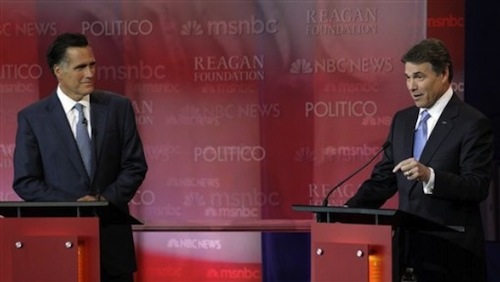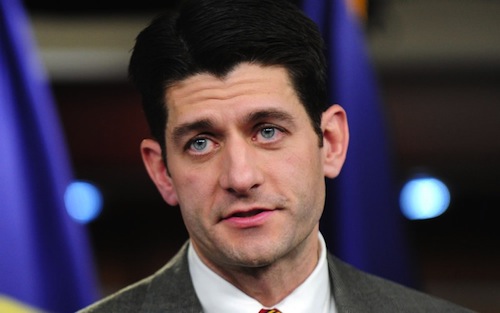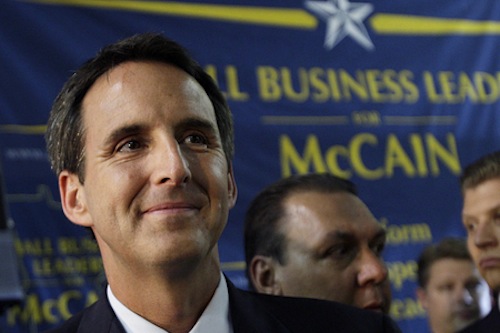 If the gap between rich and poor seemed like it was widening a bit more slowly this morning, it was probably because Occupy Wall Street is still going on. Exactly how it goes on remains a matter of conjecture, although certain non-televised journalists are beginning to pierce the veil. Michael Greenberg’s longish tour of Zuccotti Park in the New York Review of Books provides us with a slightly less vague picture of the movement than what we’ve gotten so far, including their use of “the people’s microphone.” Because city ordinances prohibit the use of amplification devices, public speakers at the OWS demonstration have their words repeated by the crowd. It’s a big ol’ objective correlative for a protest that has coalesced out of Twitter, Anonymous and maybe a few emails from the insufferable Adbusters, and now has to grapple with the problem of propagating a message when no one has been designated to speak first.
If the gap between rich and poor seemed like it was widening a bit more slowly this morning, it was probably because Occupy Wall Street is still going on. Exactly how it goes on remains a matter of conjecture, although certain non-televised journalists are beginning to pierce the veil. Michael Greenberg’s longish tour of Zuccotti Park in the New York Review of Books provides us with a slightly less vague picture of the movement than what we’ve gotten so far, including their use of “the people’s microphone.” Because city ordinances prohibit the use of amplification devices, public speakers at the OWS demonstration have their words repeated by the crowd. It’s a big ol’ objective correlative for a protest that has coalesced out of Twitter, Anonymous and maybe a few emails from the insufferable Adbusters, and now has to grapple with the problem of propagating a message when no one has been designated to speak first.
Category Archives: Class Warfare
Perry and Romney’s log cabin campaign
Yesterday, Rick Perry told an audience in Jefferson, Iowa that “as the son of a tenant farmer, I can promise you I wasn’t born with four aces in my hand.” First of all, beware people who apply the word “promise” to statements of fact. Second, he was alluding to Mitt Romney’s remark in the Florida debate that “being dealt four aces doesn’t necessarily make you a great poker player,” meaning that job growth in Texas wasn’t necessarily Perry’s doing, and correlation does not amount to causation. That translation is why I’ll never be President, right there. The American people—even Republicans—don’t want to vote for someone too fancy. Contemporary conservatism is for rich people, but it’s not about rich people; it’s about the assumption, latent in every patriotic heart, that we will eventually become rich. The great contradiction of American politics is that the President should be an ordinary guy.
The forgotten face of class warfare
In troubled times, it’s easy for an angry majority to trample the rights of a disenfranchised minority. Here’s how troubled our times are: we’re even trying to trample heavily franchised minorities, such as Rep. John Fleming of Louisiana, who owns a bunch of UPS and Subway stores that made him $6.3 million in 2010. Yesterday morning, Fleming assured MSNBC that $6 million a year isn’t that much, since after he pays his 500 employees, forks over the rent for his locations and otherwise sees to his overhead, “my net income—the amount that I have to reinvest in my business and feed my family—is more like $600,000 of that $6.3 million. And so by the time I feed my family I have maybe $400,000 left over.” Don’t hang up, but we’re going to do some math after the jump.
The gloves come off re: class warfare
For the last several months it’s been showing up in Facebook comments and Boehner aides, but you almost never heard it from an actual congressman’s actual mouth until this weekend: class warfare. That’s what the Republican Party is calling Obama’s new jobs/deficit plan, with terrifying synchronization. “Class warfare may make for really good politics, but it makes for rotten economics,” Paul Ryan said on Fox News this weekend. “We don’t need a system that seeks to prey on people’s fear, envy and anxiety.” You can tell the GOP is scared about this, because Paul Ryan is talking. He’s the guy they get to tell the American people stuff we won’t want to hear, and they picked him the same way a carload of drunk frat boys decides who’s going to go knock on the door after they run over a dog. He’s handsome, at least by GOP standards. That’s good, because in this analogy, about 65% of America is the dog.
Pawlenty infuses GOP field with bold new ideas
Former Minnesota governor, Republican presidential candidate and benevolent eagle Tim Pawlenty delivered what his aides described as a “major economic policy address” yesterday, laying out his plan for the United States economy to achieve 5% annual growth. “Plan,” in this context, is more like “demand,” and “achieve” is “develop with no discernible causality.” The details of Tim Pawlenty’s economic plan may surprise you, particularly if you’ve never heard or read anything about a Republican politician since 1928. The rest of you can put on your disappointed-not-to-be-surprised faces in preparation for the jump.




